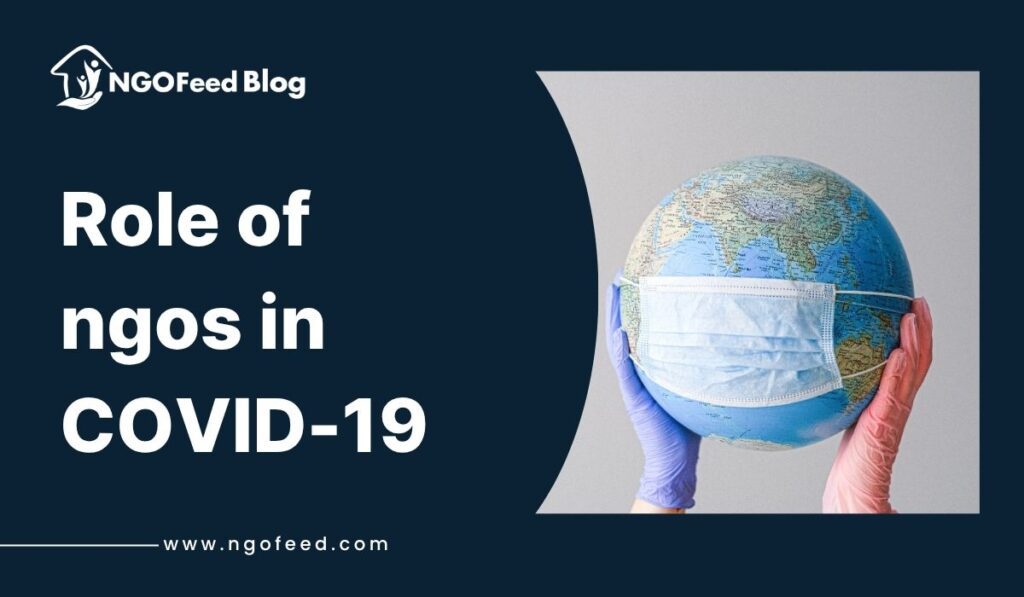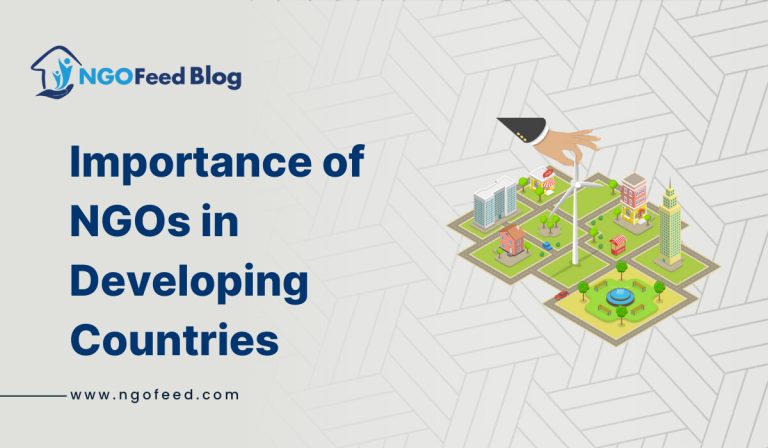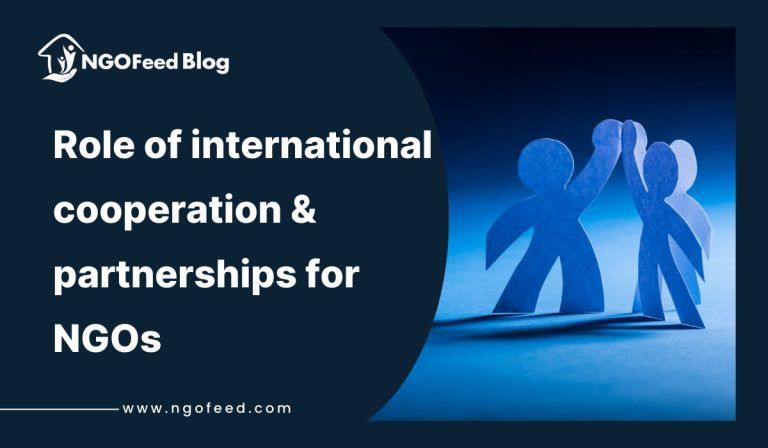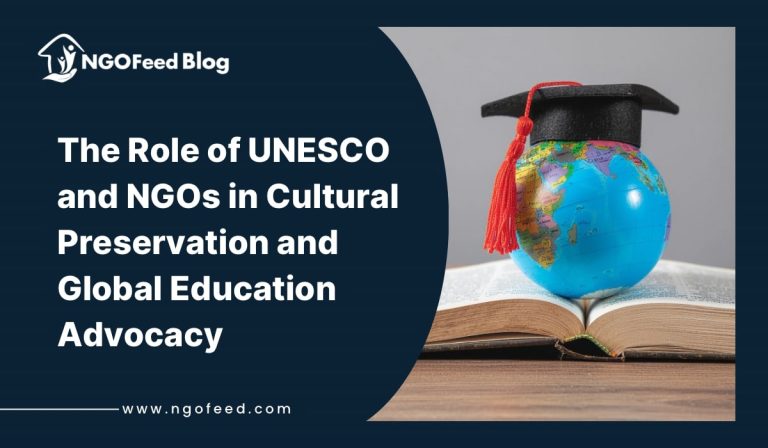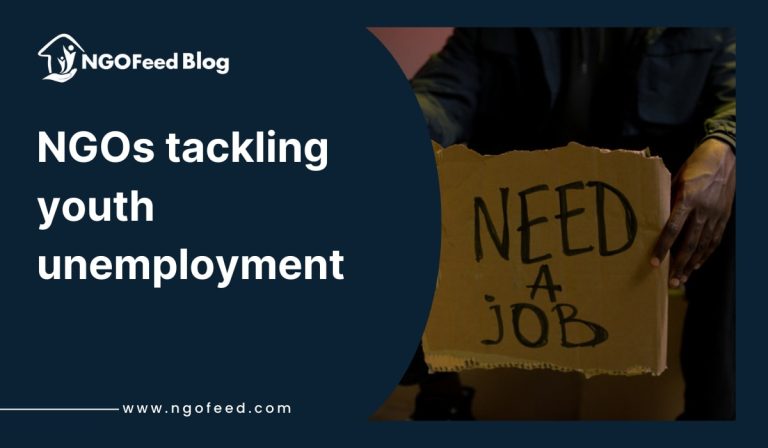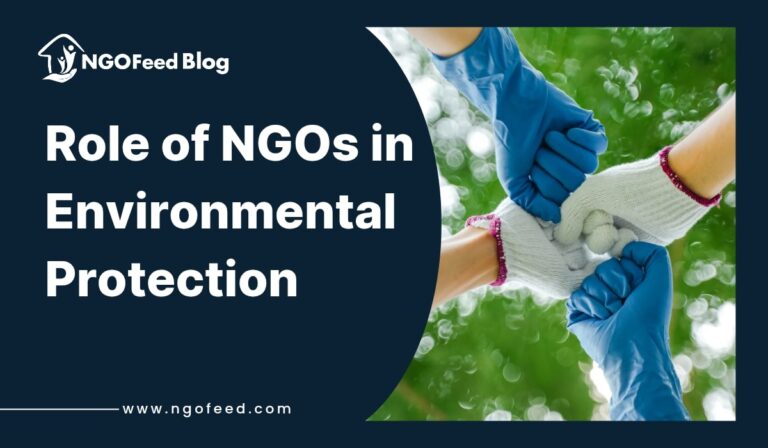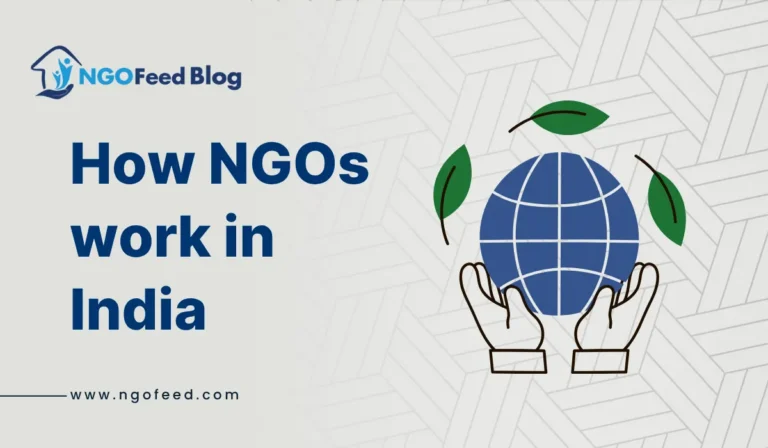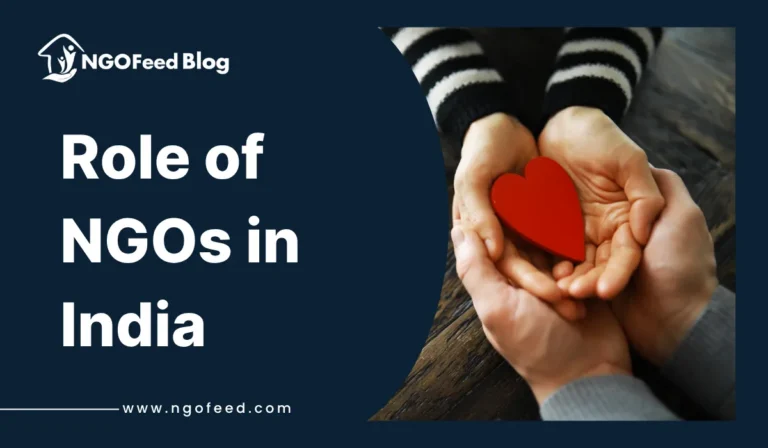Role of NGOs in COVID-19: While COVID-19 numbers are rising slowly in cities like Mumbai, Chennai and Ahmedabad, doctors warn that the pandemic is still not done. Since both new variants and the continued risk of community transmission are present, it is important to increase public information, encourage preventive behaviour and support our communities again. While government organisations are working to keep up with the increasing numbers, NGOs are once again leading the efforts to combat the disease.
When the pandemic began, NGOs were crucial in making up for weaknesses in food and medicine distribution, community learning and mental health care. Location in vulnerable neighbourhoods allowed them to act fast and efficiently, serving people unassisted by main institutions. Now that a new wave of outbreaks is happening and people feel pandemic fatigue, NGOs are playing a more important part.
At the moment, NGOs in India have the opportunity to join public health efforts, bring reliable details about symptoms and vaccination and address misinformation that people keep encountering. Through these organisations, people in need can access health services, get isolation support and have their social and financial needs addressed too.
Also Read: Role of UNHRC in Safeguarding Human Rights
If India sees a recurrence of the disease, close teamwork between both sides will play a big role in preventing its spread and lessening its impact. In this article, the author looks at how NGOs are taking action against COVID-19, mostly in areas of the city that are now experiencing new outbreaks.
Table of Contents
The Evolving Role of NGOs in COVID-19, the Pandemic Response
Non-Governmental Organisations (NGOs) have been active and changing over the course of the COVID-19 pandemic. An emergency effort in 2020 about sending masks and sanitisers turned into a program dedicated to public health, stronger communities and social welfare. As more COVID-19 cases emerge in Mumbai, Chennai and Ahmedabad, NGOs are refocusing their work on future preparedness and campaigning.
At the beginning of the pandemic, NGOs were crucial in helping people in urban slums, rural areas and among those considered marginalised, since this group rarely benefited from government help. They educated people on safety, transported migrant workers and made
sure essential items reached people during lockdowns. Because of their groups of supporters, they could act fast and with understanding, often saving those who suffered the most.
At present, because we know more about the virus and have a better health system in place, NGOs are changing how they function. At the moment, they are taking part in post-pandemic rehabilitation, counselling for mental health, organising vaccination drives and educating people about digital health. Working with the government, many NGOs are tracking disease outbreaks, helping manage isolation centres and encouraging people to toward the pandemic in places with hesitancy or misinformation.
Also Read: Role of NGOs in Mental Health
As cases keep going up, it is clear that COVID-19 is not something we should forget. Currently, NGOs no longer only assist—they now team up with authorities in spotting health hazards, giving healthcare and aiding those in need. By taking on new duties, community physicians demonstrate why it’s important to engage the community in fighting the present pandemic and in preparing for future health emergencies.
Community Outreach and Awareness Campaigns by NGOs
During the battle against COVID-19, information has proved to be very valuable, and NGOs have made a huge difference. Because they are relied upon, NGOs in India have organised countrywide campaigns to explain the virus, call for preventive steps and correct wrong and harmful information.
People in slums, rural villages, and underserved communities rarely get reliable information. At first, news and stories about the pandemic travelled more rapidly than facts did. NGOs took action because of this gap, going from house to house, distributing leaflets in many local languages and arranging small groups to talk about COVID-19 symptoms, tests and vaccination. These projects were most essential where people did not have good internet access or were not familiar with digital technologies.
More variants of the virus and rising cases once more in Mumbai, Chennai, and Ahmedabad are causing NGOs to increase their efforts to engage the community. Local radio, WhatsApp, groups, street performances and local influencers are all ways they are using to provide recent health updates. Several NGOs join up with local health services to help provide mobile medical units, vaccination services and assistance with quarantines.
Also Read: Role of WHO in Healthcare
These outreach projects involve more than just providing health information. NGOs are managing matters related to hesitancy towards vaccines, misunderstandings about chronic symptoms and concerns people have about being infected. COVID-19 responses by NGOs use culturally appropriate ways to talk with people and rely on community leaders, allowing people to decide and act to keep their families safe.
In the face of more infections, being aware can stop them. So NGOs stay active, guiding, including and helping local areas grow stronger and more committed to the environment.
Supporting Healthcare Systems and Frontline Workers
With India expecting a possible surge in COVID-19 infections, including in Mumbai, Chennai, and Ahmedabad, NGOs are stepping up yet again to support the overburdened healthcare sector and its frontline workers. From the early days of the pandemic, NGOs have been retraining and reinforcing public health infrastructure options, particularly in hard-hit, underserved regions where medical options were few to none.
During the height of COVID-19, NGOs provided supplies of PPE, sanitisers, oxygen cylinders, and essential medications for hospitals and clinics, and many served to establish temporary isolation centres and quarantine shelters in densely packed urban neighbourhoods where home isolation was impossible.
Also Read: NGOs in Cancer Care
At this point, as hospitals prep for additional patients, NGOs will help to assist logistical, emergency preparedness, and mobilisation tasks. NGOs work closely with local officials to address gaps in supply chains, get medical essentials distributed by local governments, and ensure provision of care to everyone equally, especially those in poor status, above the age of 65, or living with co-morbidities.
Equally significant are the psychosocial supports NGOs are providing to healthcare workers, many of whom are showing signs of fatigue and burnout after a long-term commitment to the country’s pandemic response. Some NGOs provide mental health counselling and hotlines, and well-being sessions for stress relief for frontline staff to combat the emotional toll of their work.
As well, NGOs are training community health workers to be first responders—a step to ensure volunteers can monitor symptoms, direct patients to care, or to home-based care if necessary. Such grassroots efforts are not only enhancing formal healthcare services, but they are also accelerating the response time and localising interventions.
As NGOs build on healthcare capacity and support frontline heroes, they continue to be an essential component of India’s ongoing COVID-19 response.
Socioeconomic Relief and Mental Health Support
As COVID-19 resurfaces in major Indian cities, the socioeconomic impact on vulnerability is worsening. NGOs are essential in providing immediate relief while providing longer-term support to the worst affected – those facing job loss, food insecurity, and emotional trauma.
Millions of families faced unimaginable hardships during lockdowns and economic downturns, many of their livelihoods taken away in a few short days. NGOs acted quickly, in days, in supplying ration kits, hygiene kits, and cash assistance to daily wage earners, migrant workers, and social isolates. Thousands of individuals helped meet their basic needs while working to prevent falling into deeper poverty.
Not only do NGOs meet immediate economic poverty needs, but they also engage with the important, unacknowledged crisis of mental health. The fear of infection, losing loved ones, and isolation has affected many people emotionally. NGOs are addressing the need for mental
Also Read: Role of NGOs in HIV and AIDS Awareness and Prevention
health support via helplines, online counselling, and community-based mental health psychosocial support – for example, supporting women, children, and the elderly.
By engaging with both economic deprivation and emotional trauma, these NGOs are moving communities on to recovery, not just physical recovery, but community recovery. The ongoing work at the grassroots level, delivering effective, compassionate, and humanising support, can assist in building resilience in the face of catastrophic outcomes.
Collaborative Efforts: NGOs, Government, and Citizens
The battle against COVID-19 has shown that no one can fight a public health emergency alone. The collaboration of NGOs, government authorities, and citizens is evident, and has been one of the most effective approaches to the COVID-19 pandemic, as we are starting to see rises in cases in cities like Mumbai, Chennai, and Ahmedabad.
NGOs have been critical lynchpins between people and the government authorities. The government which typically provides policy directives, or funds, represents the public sector, while NGOs usually undertake the public service, or in practice, the last mile, particularly in the hard-to-reach or underserved areas. NGOs are facilitated to implement vaccination camps, awareness campaigns, and provide relief services and at times have acted faster and provided greater flexibility than government agencies.
Also Read: Role of NGOs in Sustainable Agriculture
Coordinating actions with NGOs is less formidable for the government either in the form of a systematic or systematic process when the time is taken in collecting data, mobilizing volunteers, or providing the service. What is also obvious is that while government and NGOs forge or design their partnership no service is complete without citizen participation in volunteerism, donations and local leadership, which has given greater depth and breadth to people’s connections with both NGOs and the provision of services or programs by governments.
Also Read: Role of UNHRC in India
This sort of tri-sector partnership approach has provided a possible re-vitalization of what we understand about the COVID-19 responses to be more inclusive, localized, and responsive to what the need is on the ground by leveraging each sector’s strengths. Now, as our country sees yet another wave of infections, hopefully, sustaining and strengthening these collaborations will be the way to go. If we can continue to harness and expect consistent and trustworthy partnerships across NGOs, governments and citizenry, we will be able to develop a more resilient, learned and caring way to respond to ongoing and future health crises.

